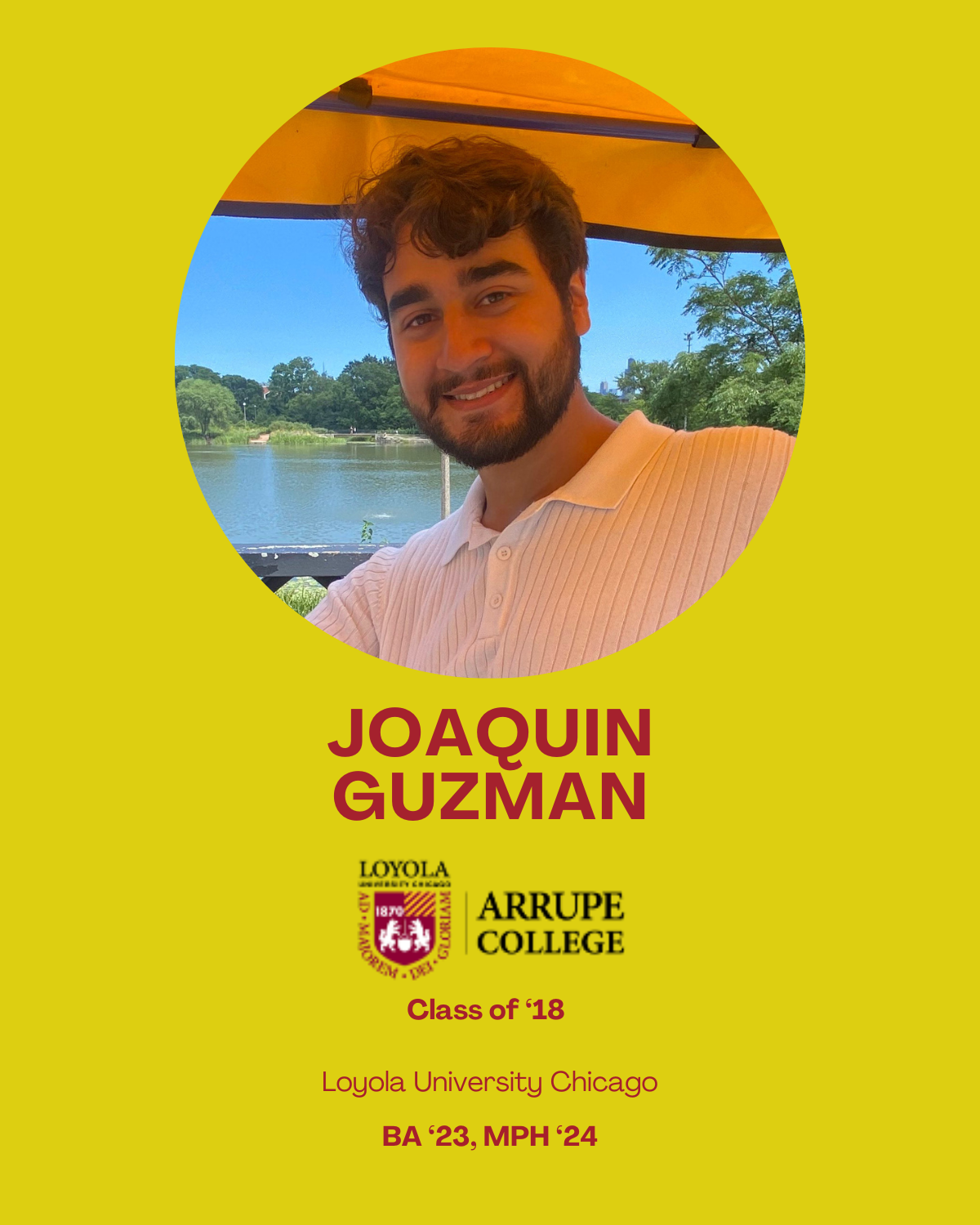Pell is Essential: Joaquin Guzman
As Congress considers the level and structure of funding for federal need-based grant aid as part of its budget negotiations, Come to Believe is highlighting the voices of graduates from Arrupe College and Dougherty Family College. These talented individuals demonstrate the impact of federal investments in undergraduate financial aid. Their stories show that federal funding for financial aid, in the words of one alumna, is “not just helpful, it is essential.”
Tell us a bit about yourself. What year did you graduate from Arrupe? What are you up to now? What are your academic/professional goals?
My name is Joaquin Guzman, and I currently live in Chicago, Illinois. I graduated from Arrupe College in 2021 with an associate’s degree in liberal arts, where I worked as an orientation leader and math tutor. I continued my academics at Loyola University Chicago where I received a bachelor’s degree (2023) and a master’s degree (2024) in public health. I currently work as a data analyst for the Office of Students with Disabilities at Chicago Public Schools.
What role did affordability play in your decision to attend college and Arrupe specifically?
Affordability played a key role in my decision to even apply to Arrupe College. I remember being intimidated by the application process and generally avoiding applying to any colleges. However, one of my uncles told me about an open house that Arrupe College was hosting. I was immediately sold by their mission and am especially grateful that they helped me start my application process right then and there.
How did Arrupe support you financially? How did that financial aid support help you be successful in college?
I lived in Aurora, Illinois while I was attending Arrupe in Chicago, so transportation was a big issue at the time. When I voiced my concerns to one of the Deans, they helped me find the resources to cover my monthly train pass. My tuition was often covered by financial aid and scholarships, which gave me the privilege of focusing solely on academics. Arrupe provided us with breakfast, lunch, and a community pantry we could use for groceries and other utilities. It’s honestly a list that goes on and on of supports we received.
How did attending Arrupe impact your life overall?
Arrupe had such a large impact on the trajectory of my life. Outside of what one might generally get from attending college, I felt that Arrupe helped me by preparing me to succeed in higher education. My decision to become a math tutor and pursue public health was due to suggestions from my advisor who happened to also be my math professor. Arrupe College then helped me connect with the Parkinson School of Public Health at Loyola University Chicago, where they continued to advocate for my financial support even after I had graduated. There were so many staff and administration in my corner, and I know I wouldn’t be where I am without them. I will forever be grateful to Arrupe for that.
What is a unique memory you can share with us from your time at Arrupe?
I remember I would have afternoon classes during my first year. Still, I’d take the train early morning to hang out with some of the students from the morning cohort and eat my breakfast. Then, I’d hang out with professors in their offices, spend time with other students who were also in the building, or take time to get some work done. The culture at Arrupe was so welcoming that I loved being there outside of just time in the classroom.
What would you say to a public official about the importance of financial aid for college students?
Every student that I have ever met has been impacted by support from financial aid. I could not be at the point in my life that I am today without the financial aid I received while in school. This is especially important to students coming from low-income backgrounds. It is a privilege to have the means and time to dedicate ourselves to our academic aspirations. This is what financial aid grants us.

